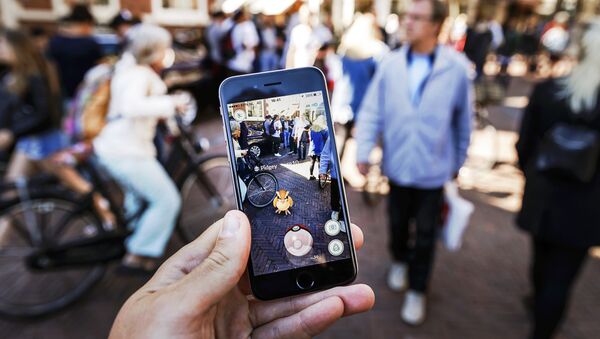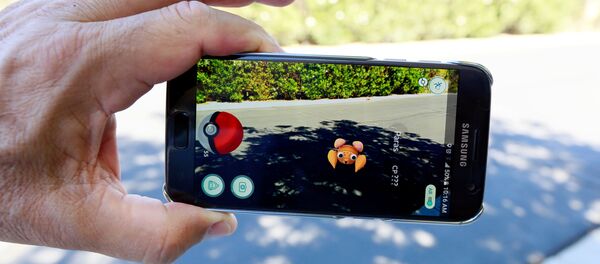Niantic's games tend to be about social interaction and going places. Their first application was Field Trip, an interactive geolocation-based encyclopedia of points of interest (POI). It supplied a user with information about their surroundings, as they approached the POI.
Naintic's first interactive game, launched in 2012, is called Ingress, and added a social layer as a key feature of the game. The players had to go out to the streets to "fight" with other players in the real world using their smartphones. But Niantic went further, with Ingress's concept of "Control Fields," requiring the coordination of large groups of players spread across a territory.
The largest Ingress control field captured to date had points established in Greece, Germany, and Ukraine. The average distance between points was 1,928 km, took months of planning, and required the coordination of some 200 players.
According to Bhagrava, the popularity of Ingress far exceeded the team's expectations.
"What ended up happening in small towns and smaller cities was that people would meet other people in the world while playing Ingress, and friendships started emerging, and that social aspect became the biggest thing. That became a new tenet for us: that we wanted to encourage social fun, which is why we started doing a lot of events," Bhagrava said.
To get a glimpse of Ingress's popularity, it is noted that at least 6,000 people took part in one of the recent major "fights," in Japan.
"The multiplayer aspect is still something we're exploring, we're still trying to figure out what's the best way to do that," Bhargava said. "So far we've learned that multiplayer battles are a lot of fun."
"For us, we're really trying to create the genre of real-world gaming. No one's really done this in a way that we were all excited about," he said. "It's all about getting people moving, getting them exploring the world around them."
Denying worries that the two innovative games, Ingress and Pokemon Go, would likely cannibalize each other's audience, Bhagrava says the company does not worry much about it, as they are interested in promoting real-world gaming.
"We're not that worried about the effect that each game might have on the other, but what we're hoping is that with both these games, the overall pie of real-world games will increase. There could be a board game you could make in the real world where people are capturing locations, like Risk or something. My personal fantasy is like a Game of Thrones game, where Westeros is mapped out on Earth, and you join House Stark or whatever," Bhagrava said.
While Niantic did not confirm plans to create a game based on the enormously popular TV-series franchise, this is not an implausible idea. Pokemon Go, combining innovative gameplay with an existing franchise fanbase, is sweeping the world. Turning to the Game of Thrones franchise, with their 25.1 million viewers per episode, looks like a more conservative plan.
Another option, posited by Pokemon Go players in an online petition, suggests that the company should turn its hand to the Harry Potter series, using a voice-recognition engine to "cast" spells in real life.
If chasing demons, gods and points in a smartphone is what it takes to get people off their couches and out of the house to make friends, why not?



